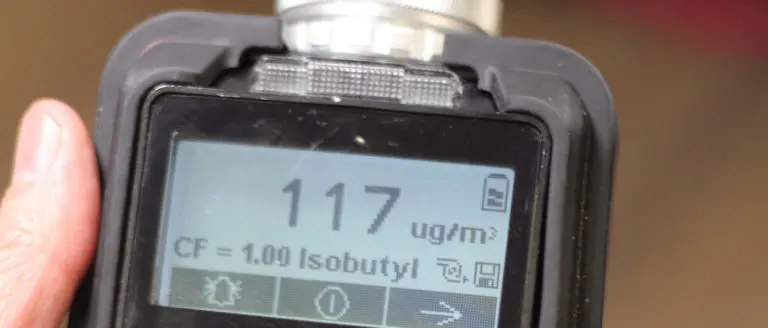Veterinary Drug VOC Residue Testing
The testing of volatile organic compound (VOC) residues in veterinary drugs is a critical component of ensuring the safety, efficacy, and compliance with regulatory standards in pharmaceutical manufacturing. In this service, we specialize in identifying and quantifying trace levels of VOCs present in active pharmaceutical ingredients (APIs) and finished veterinary drug products.
Our testing process begins with the collection of samples from various stages of production, including raw materials, intermediates, final products, and even packaging materials. Each sample undergoes rigorous preparation steps to ensure accurate analysis, which may include extraction, concentration, and derivatization processes depending on the VOCs present.
We utilize advanced analytical instrumentation such as gas chromatography-mass spectrometry (GC-MS) and headspace gas chromatography (HS-GC) to achieve precise detection limits down to parts per billion levels. These instruments are calibrated using certified reference materials traceable to national standards, ensuring consistency and accuracy across all tests.
The acceptance criteria for veterinary drug VOC residue testing vary based on specific guidelines provided by regulatory bodies like the United States Pharmacopeia (USP), European Medicines Agency (EMA), World Health Organization (WHO), and others. Compliance with these standards is essential to ensure that veterinary drugs meet quality specifications and do not pose risks to animals or humans through unintended exposure.
In addition to quantitative analysis, our team also performs qualitative assessments using comprehensive two-dimensional gas chromatography (GCxGC). This technique provides detailed information about the composition of VOC mixtures, helping us better understand potential sources of contamination or degradation products. The data generated from these analyses are used to inform process improvements and quality assurance efforts within pharmaceutical companies.
Our expertise extends beyond just technical aspects; we work closely with our clients to interpret results in context and provide actionable insights regarding how detected VOC residues might impact product performance, stability, or regulatory status. By leveraging this knowledge, manufacturers can make informed decisions about necessary adjustments to their manufacturing processes or formulations.
Compliance with international standards is paramount when conducting veterinary drug VOC residue testing. Our laboratory adheres strictly to ISO/IEC 17025:2017 accreditation requirements, ensuring that our methodologies meet the highest industry expectations for reliability and accuracy. This commitment to quality allows us to deliver accurate, traceable results that can be relied upon by regulatory authorities worldwide.
Moreover, understanding the environmental impact of VOC residues is crucial in today’s increasingly sustainability-conscious world. By identifying potential sources of VOC contamination early on, pharmaceutical manufacturers can implement more environmentally friendly practices throughout their supply chains and production lines. Our services contribute positively towards achieving this goal by providing valuable data that supports informed decision-making processes aimed at reducing waste generation and promoting resource efficiency.
Why It Matters
The importance of veterinary drug VOC residue testing cannot be overstated, as even trace amounts of these compounds can have significant implications for both animal health and environmental safety. Ensuring that veterinary drugs do not contain harmful levels of VOC residues is essential to protecting the well-being of animals treated with such medications.
From a broader perspective, reducing VOC emissions from agricultural practices contributes significantly towards mitigating climate change effects and improving air quality. By offering reliable testing services for veterinary drug manufacturers, we help them comply with stringent environmental regulations while maintaining high standards of product safety and efficacy.
Industry Applications
The application of our VOC residue testing service spans across multiple segments within the pharmaceutical industry. Our clients include large-scale veterinary drug manufacturers, contract research organizations (CROs), small-to-medium enterprises involved in API synthesis, and even academic institutions conducting fundamental research on medicinal chemistry.
We serve companies that are focused on developing new treatments for livestock diseases or enhancing existing therapies through improved formulations. Additionally, we support firms engaged in sustainable agriculture by providing analytical support to optimize production methods without compromising product quality.
Environmental and Sustainability Contributions
In addition to supporting pharmaceutical companies directly, our VOC residue testing service plays a vital role in promoting environmental sustainability. By helping manufacturers identify and minimize VOC emissions early in the development cycle, we contribute positively towards reducing overall waste generation and fostering more efficient use of resources.
The reduction in VOC emissions can lead to improved air quality around farms and rural areas where these drugs are used. Cleaner environments not only benefit animal health but also enhance human respiratory conditions associated with poor air quality. Thus, our work supports broader environmental goals aligned with global initiatives aimed at combating climate change.





